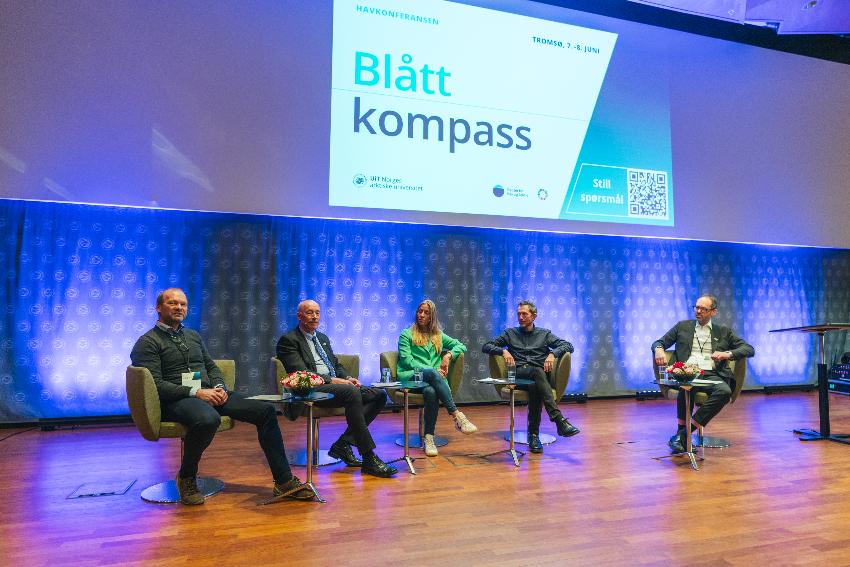Skap engasjement fordi da lærer studentene mer!
Målet med studien var å utvikle intervensjoner der man tok i bruk digitale verktøy for å skape større engasjement blant studentene for å oppnå større læringsutbytte. Den praktiske konteksten var et bachelorkurs i investering og finansiering ved Handelshøgskolen UiT. Forskningen ga både et praktisk og et

teoretisk bidrag. Det praktiske bidraget bestod av digitale verktøy som en lærer kan skreddersy og tilpasse sin egen undervisning i bedriftsøkonomiske fag. Teoretisk bidro studien med åtte vitenskapelige artikler som diskuterer egenskaper ved intervensjonene og prosessene som ledet fram til bruken i klasserommet.
I avhandlingen drøftes utfordringer med å gjøre regneark til en del av brukskulturen i et finansemne på en handelshøgskole, og studentenes erfaringer med en slik kultur. I emnet var regnearkbruk vevd inn i alle praktiske lærings- og vurderingsaktiviteter. Det vil si i at regneark ble brukt i læreboka, på forelesninger, i øvinger, i læringsfellesskap, ved innleveringer og på eksamen. Det ble utviklet en rekke regnearkbaserte lærings- og vurderingsressurser for å få dette til. Studentene som var med i studien, opplevde at regneark var vevd inn i brukskulturen i emnet på en motiverende og lærerik måte. De satte spesielt stor pris på at de kan bruke regneark på forelesninger og på eksamen.
English summary
The purpose of the present study was to develop interventions using digital tools to improve student engagement and learning outcomes. The empirical context was an undergraduate finance course wherein digital learning and assessment interventions were important features of the course design. When designing the interventions, the development activities were underpinned by pedagogical principles based on cognitive and sociocultural learning perspectives. Special emphasis was placed on integrating spreadsheet usage into all learning and assessment activities and constructively aligning course targets, assessment tasks and learning activities with the overall goal to foster an active and engaging learning environment. In addition, rooted in a pragmatic research paradigm, the methodology utilised includes many similarities with interventionist action research, which has gained a foothold in qualitative management accounting research. This interventionist research project includes two main contributions. The first is its impact on practice by designing and developing interventions to solve complex problems in an authentic classroom setting. Consequently, six practical educational interventions are discussed in this dissertation. The second contribution is theory building, which advances our knowledge regarding the characteristics of the interventions and the process of designing and developing them. Consequently, a total of eight refereed scientific articles have been produced during this research and development project. As outlined in this study, the development of the digital formative feedback intervention, is in line with research stating that, in higher education, traditional paper-based feedback is being supplemented with and in some cases replaced by innovative use of ICT. Moreover, software algorithms can effectively provide detailed and helpful individual formative feedback to students regarding their learning processes and outcomes. This study strongly supports the claim that it is problematic to use technology to enhance learning without recognition through assessments. The digital summative assessment intervention reported is regarded as a precondition for establishing a spreadsheet user-culture in the subject, especially as it served as an ‘icebreaker’ for other learning interventions that were integrated into the course design.
The intervention processes discussed have been through several iterations and their stepwise development and implementation have emerged through negotiating, compromising and resolving tension between the practitioner researcher, students and institution.
The resulting compromises resolved tensions which sometimes resulted from limited physical resources. As the students valued the outcome from engaging in the digital learning and assessment interventions, they had a flexible attitude and deployed their private infrastructure (laptops) within the learning environment. Consequently, a vital part of the institution’s infrastructure was transformed from a fixed asset (number of PCs available in a data lab) to a flexible asset in the theatres. This compromise that was negotiated between the institution, the practitioner researcher and the students was essential for the digital educational interventions to work and progress. The overall theoretical research findings from this study are presented in the form of a tentative framework, which can help bridge the gap between the intervention practice and theory. A central conjecture in the framework is that tool usage that is integrated into interventions can be influential on learning activity and engagement and consequently on students’ learning outcomes. Moreover, the framework supports the notion of ICT as a mediating cultural tool that provides a new type of affordance that can extend the mind and promote an active and engaging learning environment. In particular, integrating a spreadsheet tool in learning of management accounting subjects can offer opportunities for learners to rapidly construct financial models, enable simulations using the completed models and stimulate subject reflections based on the functions of the models and their results. The practical outcome of this study has been emphasised through the development of artefacts that aim to support practitioners intending to integrate spreadsheet usage within their subject teaching and learning. By publishing and sharing the artefacts, the current research project is capable of informing future development and implementation decisions by guiding practitioners in similar pedagogical contexts.
Kommisjon

Bedømmelseskomité
- Professor Eevi Elisabeth Beck, Institutt for pedagogikk, Universitetet i Oslo (1. opponent)
- Professor Tommy D. Andersson, Företagsekonomiska institutionen, Göteborgs univeristet, Sverige (2. opponent)
- Professor Kåre Skallerud, HHT (internt medlem og leder av komiteen)
Disputasen ble avholdt på norsk og ble ledet av professor Derek Clark, Handelshøgskolen, UiT Norges arktiske universitet
Personlig
Bernt Arne Bertheussen og ble født i 1956 på Ibestad i Troms. Han er siviløkonom med høyere avdelings eksamen fra Norges Handelshøyskole. I 27 år arbeidet Bertheussen i næringslivet før han begynte som førstelektor ved Handelshøgskolen ved UiT i 2009. Siden 2013 har han vært dosent samme sted. Han er spesielt opptatt av undervisning som kan bidra til større studentengasjement.



